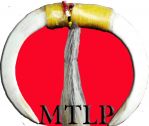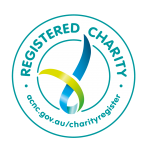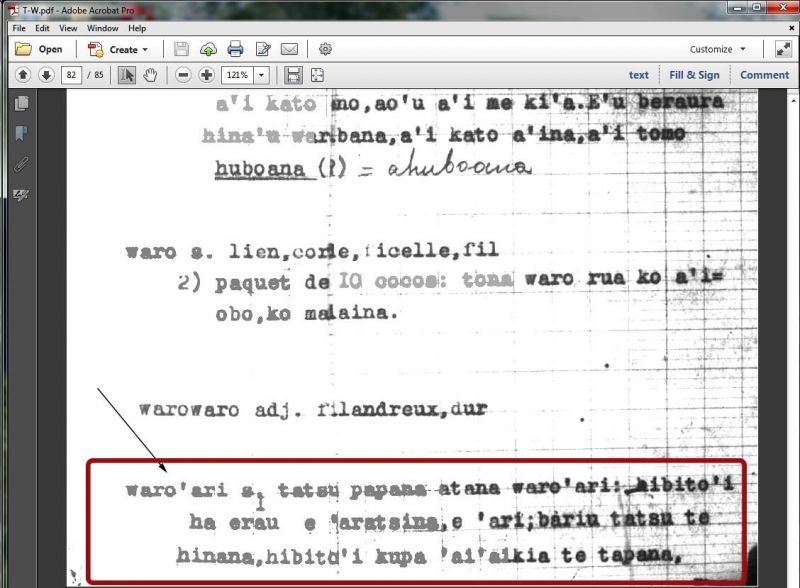Maeaka Tohana is a community-based project created to preserve the Roro/Waima/Paitana language of the Kairuku District, Central Province, Papua New Guinea.
The Team
The core team consists of three first-language speakers from PNG and one English-speaking linguist from Australia.
Ikupu Paru
Visionary, grounded in culture, fluent speaker of his own Language and English, learning to use the special database program.
Fred Ovia
Excellent Language and English skills, quirky photographer, dedicated to seeing the project realised.
Paru Kama Ikupu
Passionate about language survival. Advisor and mentor with measured approach and a firm stake in the future.
Colleen Hattersley
Long-term dream of creating an accessible resource from early Missionary documents. With this team the dream is being realised.
Before Sunday 8 February 2015 Ikupu Paru and Freddie Ovia had not heard of Language recovery. In three weeks they learned a number of computer programs and were soon sorting, interpreting, translating, illustrating and making audio recordings for entries under the guidance of cultural elders Thomas Momo (Bereina), George Akauma (Kivori Kui), their own family elders at Hisiu and Australian linguist, Colleen Hattersley.
After a lifetime of teaching and administrative work, Colleen studied Linguistics at the Australian National University with this project in mind. She assisted Aboriginal communities in Western Australia and Queensland for over ten years to create the reference materials community wanted to see. Now she is giving her time and experience to Kairuku people in this project.
These three people bring a wealth of experience and complementary understanding to the Maeaka Tohana project. Paru Kama Ikupu provides guidance from his cultural knowledge and understanding of PNG administrative processes.
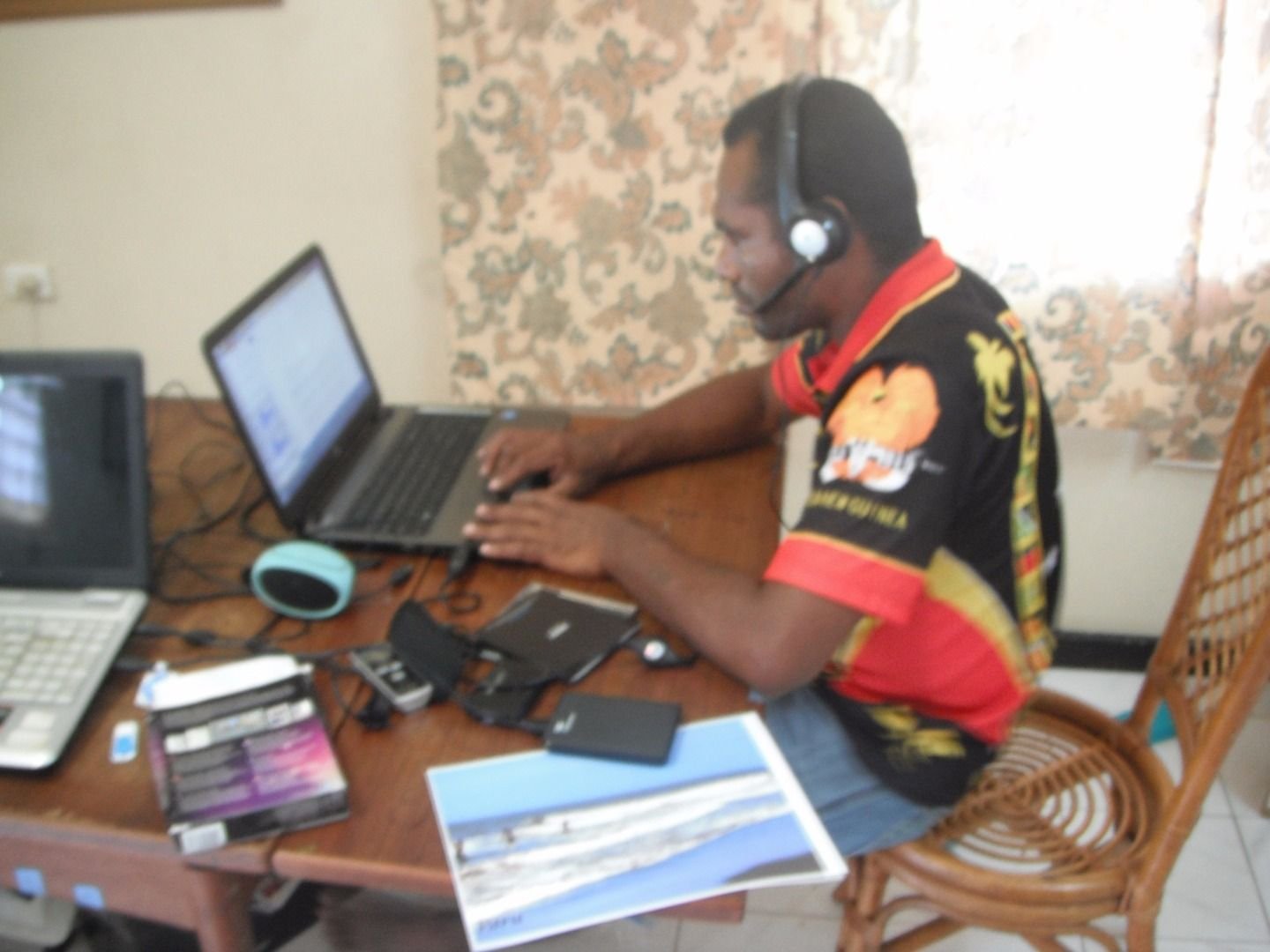
For a few months Joseph Ovia, also from Hisiu, joined the team contributing a high level of technical and computer skills as well as deep cultural understanding.
Joseph Ovia checks recording a sample sentence.
The Project
Our Language expresses our social interactions, thoughts, feelings and cultural knowledge in speech, stories and song. The Maeaka Tohana Language Project will help us to preserve Our Language in written form so that we may protect it and add to it for generations to come.
The project is examining the content of early documents written by the French Missionaries of the Sacred Heart (MSC) and putting the information into a modern computer program designed specifically for making dictionaries. This will allow us to create an interactive electronic dictionary as well as a formal printed book for those who do not have access to electronic devices.
An entry from the old documents may look like the image below.
On the computer screen, the edited entry will look like the image below:
We consider the meaning, translate the French to see what the meaning was understood to be a century ago, and then work through the sample sentence making spelling and grammatical corrections. Sometimes this takes quite a long time to do well.
If we have any doubts, we ask an Elder of our community or another community within our language group.
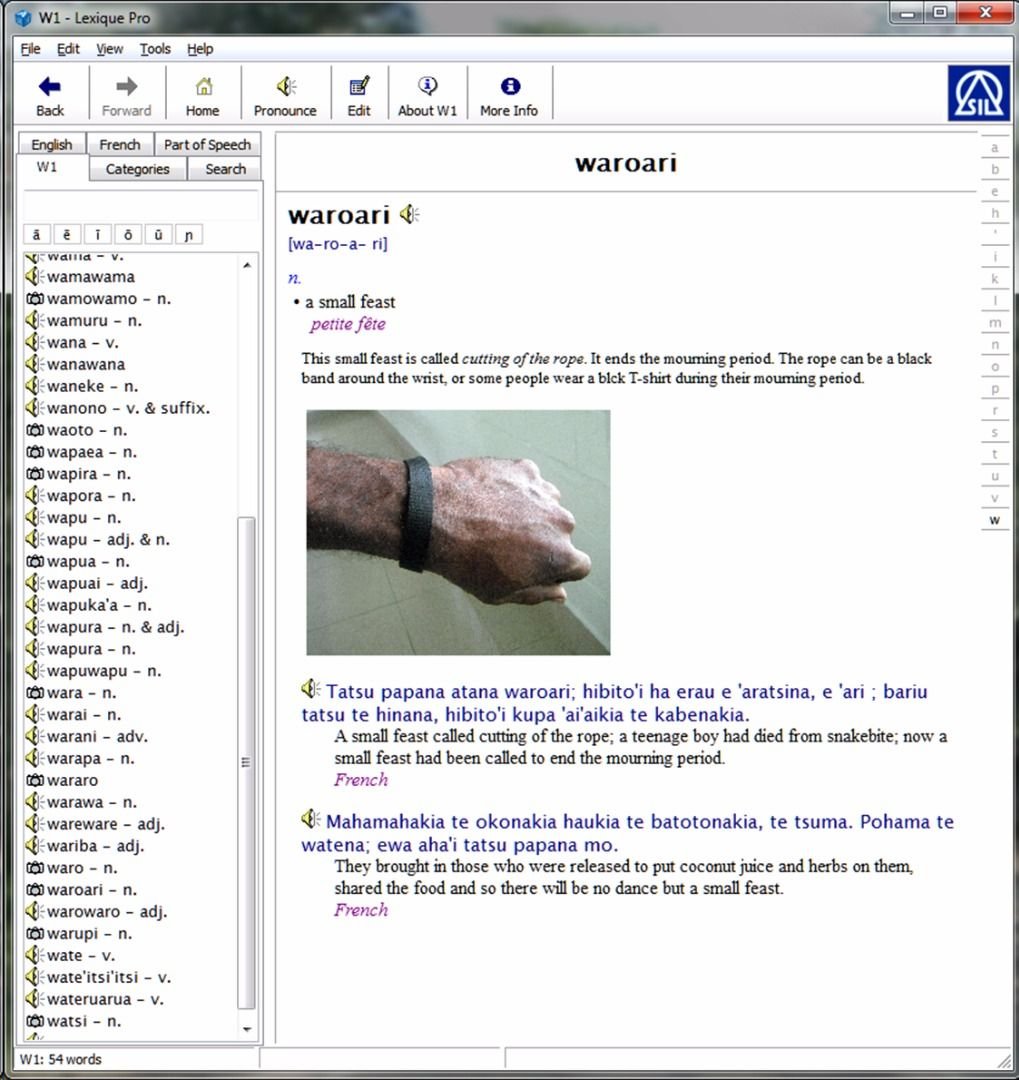
Anyone using the computer version can hear the word spoken if there is a speaker icon in the entry. They can look up other words by clicking on the list on the left-hand side of the main window. If they don't know the Language word, they can look up the English meaning by clicking on the 'English' tab.
We can include illustrations and even videos to help make the meaning clear.
The information is checked and amended several times before it is ready to be made into a document for printing. Even then there will be a proof reading process before the printed version is considered ready for release in a book.
The next image is a sample of how the printed page could look.
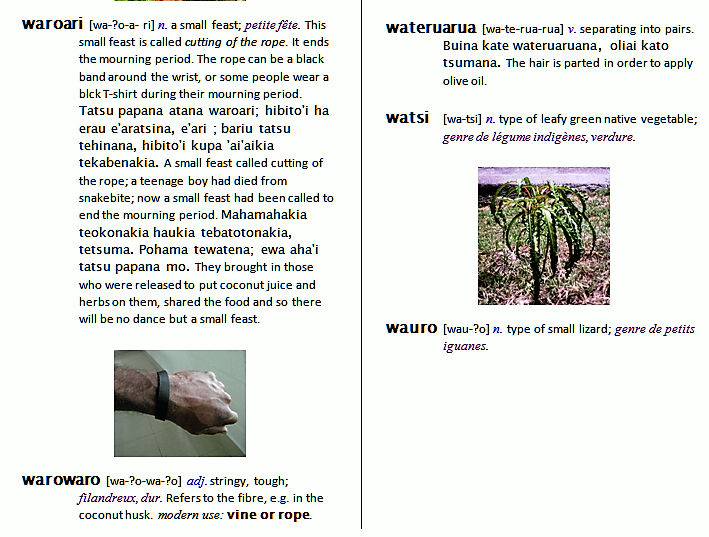
The first edition, with entries from M to W, will be available by the end of June, 2019.
This is an unfunded project. We rely on donations from supporters to keep us going. If you can spare the price of a meal or a couple of coffees please press the DONATE button now.
